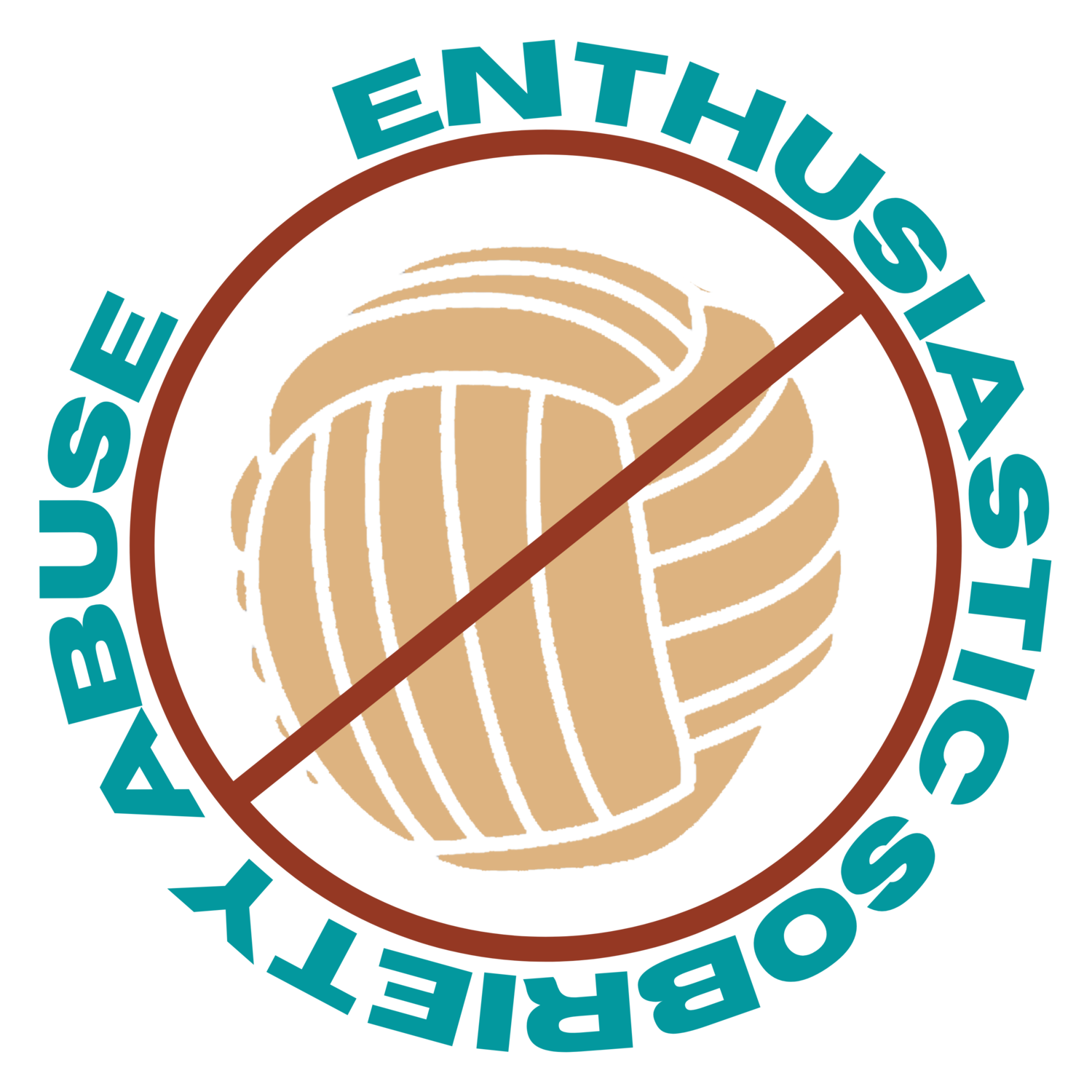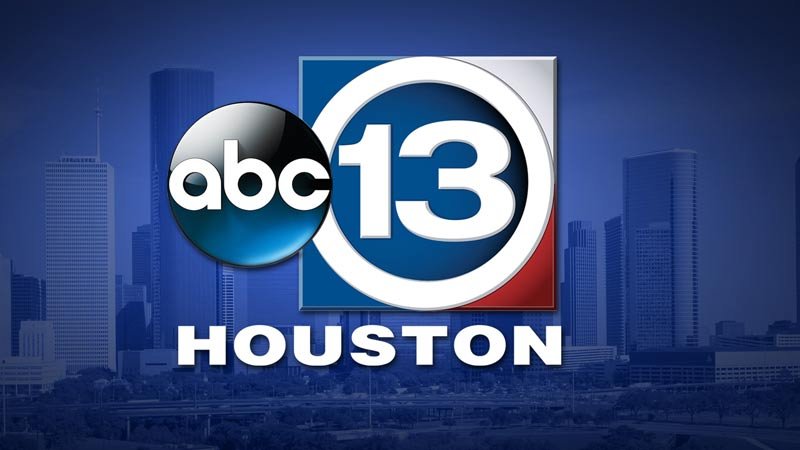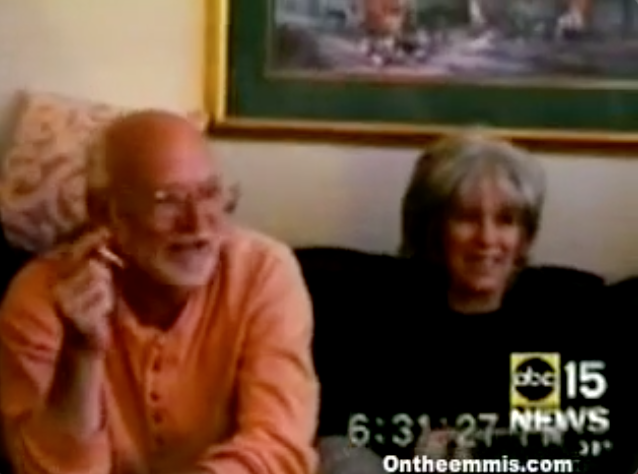
Enthusiastic Sobriety Abuse in the Media
Do you want to speak to the Media?
Kansas legislators circumvent board allocating state’s opioid settlement funds, stalling distribution process.
Full Circle, based in Overland Park, is one of the groups that received funding. It’s an “enthusiastic sobriety” group, which offers no-cost drug and alcohol support groups that promise to be more fun than getting high.
But enthusiastic sobriety programs are often controversial and described as “cult-like” by former members of those programs.
-Kylie Cameron, KMUW. April 22nd 2024
St. Louis-Based Crossroads is Under Fire from Past Participants
At Crossroads, a drug rehab facility in St. Louis that is geared towards teens and young adults, participants say that they experienced traumatizing therapy and a cult-like atmosphere.
-By Rosalind Early, Riverfront Times. July 19th 2023
Judge recommends against decertifying director of controversial teen rehab program
On May 24, Administrative Law Judge Karlene Turrentine recommended that the state board licensing North Carolina addiction counselors dismiss that agency’s allegations against William Guest.
NCASPPB director Culbreth says that the investigation of the Insight Program in North Carolina is only just beginning.
-By Ian McDowell, YES! Weekly. June 7th 2023
Former members allege reckless and ‘cult’ behavior at Kansas City teenage addiction program
When teenagers and young adults in Missouri and Kansas struggle with addiction and alcohol abuse, some turn to outpatient groups based on the idea that substance abuse treatment has to be fun and feel good for it to stick — but former clients say the programs pushed them into reckless behavior.
-By Noah Taborda, KCUR. February 2023
CO Lacks Appropriate Resources for Teen Addiction
The lack of reliable treatment options often drives desperate parents to treat substance abuse disorders through unverified programs that vary in their effectiveness.
As a result, many sobriety programs are able to operate without much oversight or regulations in place, often to the detriment of families and their children who rely on these types of services when faced with alternatives that are limited or financially inaccessible.
- By Isabel Lanzetta, Colorado Times Recorder. October 2022
‘Reefer Madness’ and the Troubled Teen Industry
Enthusiastic Sobriety programs like Cornerstone and FullCircle, which use a modified version of Alcoholics Anonymous’ 12 steps, aren’t the first sobriety programs to be discussed in terms of being a cult.
“I’ve been hearing from ex-members of 12-step programs for decades about how it’s a cult,” says Dr. Steven Hassan, a leading cult expert and the author of Combatting Cult Mind Control. “I’ve also heard from people who said it saved their life and that they really credit it with saving their marriage. For me as a therapist, I just want people to be fulfilled and be able to work and have healthy relationships. …
- By Heidi Beedle, Colorado Times Recorder. October 2022
Enthusiastic Sobriety, 5280 High School, and Denver Health
Frank Szachta, the owner and director of Cornerstone, is listed in the minutes of an Aug. 19, 2021, 5280 board meeting as being part of the school’s expansion committee, alongside 5280 board member Paul Scudo, 5280’s Executive Director Melissa Mouton, Salehiamin, Stincer, and Hayes. The responsibilities of the committee included, documenting 5280 High School’s standard operating procedures, creating a strategic plan that includes a funding plan and budget for an expansion, and outlining an “outreach/recruitment plan” for students for an expansion.
In an email, Mouton denied any kind of official relationship between 5280 and the Enthusiastic Sobriety programs.
- By Heidi Beedle, Colorado Times Recorder. October 2022
Youth Gone Wild: Denver’s Teen Sobriety Group and ‘Fun Felonies’
Shortly after publication, CTR was contacted by members of the Enthusiastic Sobriety Abuse Alliance (ESAA), a nonprofit organization that alleges that FullCircle and its sister group, Cornerstone, which provides an intensive outpatient program, are part of a national network of teen addiction programs that, through their “enthusiastic sobriety” methodology, are a kind of cult that encourages teens to take part in risky, often illegal behavior, engage in animal abuse, and encourages racism and homophobia.
CTR found the allegations so serious that editors decided to remove the FullCircle story from our news site and investigate further. This much longer story — and the ones that will follow this week — combine our original story with the results of our investigation.
- By Heidi Beedle, Colorado Times Recorder. October 2022
The Love Bomb
For 50 years, Enthusiastic Sobriety programs have promised to help teenagers kick drugs and alcohol addiction. But former followers say Enthusiastic Sobriety doesn’t save lives - it destroys them.
- By Daniel Kolitz, The Atavist. July 2021
Code of Silence
Survivors allege teen rehab refused to report rapes. Previous attendees speak out against mistreatment at The Insight Program.
- By Ian McDowell, YES! Weekly. June 2021
Fear, Fraud and ‘Fun Felonies’
Former members of a controversial teen drug and alcohol program in Greensboro, Charlotte, Raleigh, and Atlanta allege staff tolerated acts of vandalism, arson, and animal abuse by teens in their care. They also allege that members were required to go off all medications, forbidden to see doctors, and discouraged or prevented from engaging in solitary activities like reading, drawing, or listening to music.
- By Ian McDowell, YES! Weekly. February 2021.
The [HATE] Group
Multiple former patients of a local teen drug and alcohol rehab program allege that it not only isolates its members, demands obedience, and teaches that homosexuality is a delusion, but that its staff and founders regularly insult African-Americans and Latinx people in crude terms.
- By Ian McDowell, YES! Weekly. January 2021
Counselor Sentenced to 5 Years Probation for Sex Crime
A West U drug counselor who was arrested last July for having sex with an underage patient has been sentenced to five years of probation and fined $500.
Amanda Leann Kueht, a 28-year-old Houston resident, was sentenced on Aug. 3 to probation ending Aug. 2, 2017 for indecency with a child – exposure.
At the time of her arrest, Kueht was a managing counselor at Cornerstone Recovery, a substance abuse treatment facility for adolescents.
- August, 2012
Substance Abuse Counselor Accused of having Sex with Teen Client
Amanda Leann Kueht was a drug and alcohol recovery counselor at Cornerstone Recovery in Houston, Texas. Now she's a defendant, arrested Tuesday night by West University Place police. Now Kueht, 28, is charged with sexual assault of a child under 17.
- August 2011
Wrong Turn on the Freeway
In 1984, Tony Suraci was a 17-yeat-old Fallbrook High senior who sang in local bands and acted in school plays. He remembers the day he became part of a “sobriety cult.”
- By Ken Leighton, San Diego Reader. October 2006
Pathway’s Problematic Preachings
A local addiction-recovery program has a history of forgery, homophobia, racism and coercion, former employees say.
- By Arek Sarkissian II, Tucson Weekly. May 2005
Kids & Drugs & Rock & Roll
At the Crossroads Program in Chesterfield, teen sobriety is supposed to be fun. It's also expensive -- and not everyone's buying.
- By Malcolm Gay, Riverfront Times. May 2005
ABC15 Phoenix Investigative Report - Part One
Survivors from OnTheEmmis.com banded together and contacted ABC15 investigators and other media outlets to expose Bob Meehan and his abusive Enthusiastic Sobriety programs.
These efforts resulted in Bob Meehan “stepping down” from his leadership role in his programs and the dissolving of the ICECAP Board of Directors.
- February 2005
ABC15 Phoenix Investigative Report - Part 2
Survivors from OnTheEmmis.com banded together and contacted ABC15 investigators and other media outlets to expose Bob Meehan and his abusive Enthusiastic Sobriety programs.
These efforts resulted in Bob Meehan “stepping down” from his leadership role in his programs and the dissolving of the ICECAP Board of Directors.
- February 2005
ABC15 Phoenix Investigative Report - Part Three
Survivors from OnTheEmmis.com banded together and contacted ABC15 investigators and other media outlets to expose Bob Meehan and his abusive Enthusiastic Sobriety programs.
These efforts resulted in Bob Meehan “stepping down” from his leadership role in his programs and the dissolving of the ICECAP Board of Directors.
- March 2005
ABC15 Phoenix Investigative Report - Part Four
Survivors from OnTheEmmis.com banded together and contacted ABC15 investigators and other media outlets to expose Bob Meehan and his abusive Enthusiastic Sobriety programs.
These efforts resulted in Bob Meehan “stepping down” from his leadership role in his programs and the dissolving of the ICECAP Board of Directors.
- April 2005
Medicaid Funds Spent Improperly
Parents at a Houston apartment complex who were persuaded to sign their children up for Lifeway’s programs may not have realized that official medical records now exist saying that their children are chemically dependent…
“They asked me if I had taken drugs and I told them I hadn’t,” said Ashley Brown, who was 12 at the time. “They said it was a drug prevention program and we would have a lot of fun.”
-The Associated Press, July 26th, 1999
Medicaid Improperly used in underage treatments
More than $1.5 million in Medicaid funds were improperly used to treat children under 10 for supposed drug dependency from 1995-97.
One program alone, Lifeway in Houston, received nearly $1 million for treating children under 10.
-Abilene Reporter, July 26th, 1999
Abuse Program to be restructured: Breakaway accused of being a cult
The government’s alcohol and drug counsellors stopped referring clients to Breakaway after a small group of parents, led by North Vancouver mother Susan Shoesmith, claimed the program was a cult and that its counsellors were recruiters for costly U.S. residential treatment programs operated by Bob Meehan.
- By Kim Pemberton, The Vancouver Sun. May 1988.
Abuse clinic called a cult by parents
Provincial alcohol and drug programs have stopped referring clients to a peer recovery group some parents say is a cult whose counsellors recruit for costly American rehabilitation programs.
Breakaway uses a 12-step recovery program developed in San Diego by Bob Meehan, and alcohol and drug treatment counsellor.
- The Canadian Press. May 1988
Controversy dogs drug therapist from U.S.
For parents desperate to find help for their troubled teenagers, Bob Meehan was a man with the answers.
“The group ends up anti-social. It’s telling the parents and the public one thing but, when you find out what is really going on, it’s very disturbing. In San Diego the group became a gang.” Ceplenski said.
- By Kim Pemberton, The Vancouver Sun. 1988
Controversial Guru Bob Meehan Allegedly Uninvolved.
[Enthusiastic Sobriety] philosophy backfired on Meehan last year when a handful of former participants in a SLIC-spawned auxiliary support group, called Freeway, alleged that while they succeeded in getting off drugs, they in turn became psychologically dependent on Meehan, the program counselors and their peers for support in staying sober, thereby making the program cult-like.
- By Tom Gorman, Los Angeles Times. April 1987
State Directs Meehan to Close Drug Centers
State licensing officials have told drug counselor Bob Meehan, himself a former drug user and an ex-convict, to close down his three drug rehabilitation operations because he is not fit to operate them.
- By Tom Gorman, Los Angeles Times. May 1986
Injunction Expected as State Warns Meehan on Unlicensed Centers
Meehan’s critics, including former program participants and employees, charge that his controversial tactics turn participants away from their families and have elevated Meehan to a cult figure. These critics also argue that Meehan’s drug and alcohol rehabilitation programs encourage participants to engage in vandalism and antisocial behavior, referred to as “fun felonies” by program counselors.
- By H.G. Reza, Los Angeles Times. May 1986
Freeway’s Meehan Operating Again, This Time for Profit
Some critics alleged that Meehan and his counselors turned participants away from their families and their religious beliefs and took the “sobriety can be fun” philosophy to the extreme by encouraging antisocial behavior and vandalism, termed “fun felonies” by Meehan.
- By Tom Gorman, Los Angeles Times. April 1986
Cure Not Worth It
Hundreds of San Diego-area teen-agers turned their backs on chemical abuse after finding that life could be more fun sober, Meehan’s way.
And so it was that Freeway, a private drug and alcohol recovery program founded locally by Meehan in 1981, won thousands of supporters as families trumpeted success stories of kids-turned-sober under the guidance of Meehan-trained counselors.
This same Freeway is today out of business, shut down by critics who say its members simply exchanged one addiction--to drugs and alcohol--with another addiction--to a life style of self-gratifying antisocial behaviors, dependency on one another at the expense of their home life, and a cult-like adoration of Meehan as the most important person in their life.
- Tom Gorman, Los Angeles Times. April 1986
Cult or Cure?
Drug addict, thief, ex-convict, con man extraordinaire, drug-abuse counselor and now author, Bob Meehan, 42, says he is all of these. He fancies himself as equal parts Elmer Gantry, Mother Theresa and P.T. Barnum.
He has been praised as a hip and gifted teacher whose lesson rings true to drug-plagued kids because he has “been where they are.”
But Meehan has also been criticized as an egomaniac out for money, power and glory; a slick operator perpetrating the ultimate con job on desperate and vulnerable families by replacing drug dependency with a dependency on him and his group.
- By Mark Sauer, The Press Democrat. May 1985
Drug-abuse counselor uses showmanship
“I referred people to Bob because I saw the effectiveness of his program in Houston,” said the Roman Catholic nun known as “Sister Vince.” “But a little over a year ago, I began hearing stories from parents going through nightmares and afraid to speak out because of the power Bob and Freeway held over their children.
There is a cultish situation. Bob is a slippery eel and he has many people conned,” she said. “To me, it’s truly frightening.”
- The Advocate. April 1985
Ex-Addict Hooked on Helping Teens
He tells the story of meeting with one of his counselors recently. He asked her how things were going. Not good, she told him. Police has caught a group of program participants shooting out street lights.
Meehan asked whether they were high at the time. No, she told him. “Then we’re successful,” he says. “Teenagers are fun machines. We’re not there to control their lives or make them take out the garbage. They’re dumb, stupid and lazy.”
Meehan’s only training as a drug rehabilitator is what he calls his “degree from the streets.”
- By Leslie Pound, The Hartford Courant. March 1985
Drug Program Called an Addiction
Two East County couples say they have “lost” their daughters to a controversial Escondido-area drug-treatment program which they claim tries to alienate children from their families.
Don and Joyce Ceplenski of La Mesa said Tuesday they decided to speak out about their family situation because they have lost contact with their 19-year-old daughter, Jill, a former drug addict who worked at SLIC (Sober Live-In Center) Ranch. They fear they may also lose touch with their 17-year-old daughter, Tracy, who was treated at SLIC in 1983.
- By Ruth McKinnie-McCoy, The Times Advocate. November 1984
The Story of a Con Man who helps kids kick drugs
“Any time you depend on the charisma of a leader, you fear that results will fade with time or distance from the guru,” he said.
Meehan said he knows that he has tremendous influence on this young charges, but he tries to use that to good purposes.
“I’d like to think I’d become one of their local heroes instead of Cheech and Chong,” he said.
But he acknowledged that his relationship with the clients could lead to problems.
“Yeah, it scares me,” he said. “You get into a real guru (situation). This is where cults can begin.”
- By Ruth Kinnie-McCoy, The Times Advocate. August 1984
Publicity Alters Drug Abuse Program
Meehan resigned and the national program was reorganized as a result of that and subsequent coverage…
Meehan, who lives in Los Angeles, was retained as a $25,000-a-year consultant to PDAP and is a member of the newly formed national governing board.
-By Kara Rogge, Fort Worth Star Telegram, 1980
PDAP
Meehan was described as a "superb con man" by former employees who pointed to complicated and potentially unethical ties to hospitals where PDAP kids were sent. The hospitals charged hefty fees, and Meehan received up to a $50,000 consulting fee. Despite extensive research and interviews with hospital personnel, these connections could not be addressed in the show, which focused instead on Meehan's unsubstantiated claims of the success rate and the troubling methods of therapy. A few months after the show aired, Bob Meehan was removed as director of PDAP, which was thoroughly reorganized.
- Dan Rather, 60 Minutes. January 1980









































